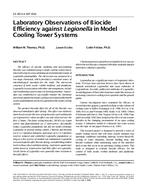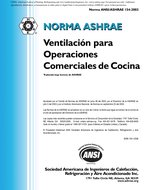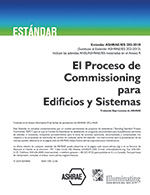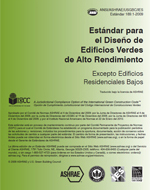Description
The efficacy of specific oxidizing and non-oxidizing biocides was examined using a model cooling system inoculated with a microcosm containing an environmental isolate of Legionella pneumophila. The microcosm was prepared in a two-stage chemostat, which provided a consistent source of microbiological inoculum for the study. The microcosm consisted of both sessile (within biofilms) and planktonic Legionella in association with other microorganisms, including Pseudomonas species and cyst-forming ameobae. A procedure was established to successfully transfer the chemostat grown inoculum to the model cooling system and establish both sessile and planktonic forms of Legionella in the model cooling system.
The greatest biocidal effect for all of the biocides was observed immediately after dosing. This effect was relatively short-lived even for the slow acting biocides such isothiazolin (as 8 ppm active) where an effect was only observed over the first 12 hours. The faster acting biocides, DBNPA (as 8 ppm active) and gluteraldehyde (as 27 ppm active), did initially reduce Legionella populations but did not totally eliminate Legionella or provide lasting control. Chlorine and bromine (as 0.5-1.5 ppm free halogen), and ozone (as 0.1-0.5 ppm free reserve) reduced and controlled Legionella populations so long as a free reserve of oxidant was maintained. Legionella recovered quickly after biocide dosing, reestablishing similar levels to those observed before dosing. A polymeric quaternary amine dosed as 8 ppm active had little effect on Legionella. Sessile forms of Legionella were generally more resistant to biocidal effects. Chemostat grown Legionella were found to be less susceptible to the test biocides compared with other available data for laboratory cultured Legionella.
Units: SI
Citation: Symposium, ASHRAE Transactions, vol. 105, pt. 2, Seattle 1999
Product Details
- Published:
- 1999
- Number of Pages:
- 17
- File Size:
- 1 file , 810 KB
- Product Code(s):
- D-7491




